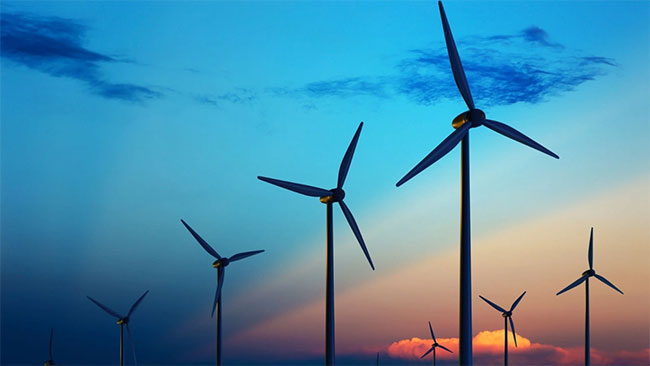India’s Adani Group’s proposed wind power projects in Sri Lanka, located in the northern regions of Mannar and Pooneryn, are under review by the new government.
This decision stems from President Anura Kumara Dissanayake’s campaign promise to reassess the terms of the projects, particularly the tariffs, which his administration views as excessive.
The National People’s Power (NPP), led by Dissanayake, has expressed concerns about the high price set for the electricity generated by the projects.
In early January 2025, the Sri Lankan Cabinet rescinded a prior decision made in May 2024 under former President Ranil Wickremesinghe’s administration, which had approved the wind power deal.
At that time, a tariff of 8.26 cents per kilowatt-hour was set for the 484 MW wind power project, sparking public outcry over the inflated cost compared to local bids that were as low as 4.88 cents.
Legal challenges from activists and environmental groups further complicated the situation, with concerns raised about the environmental impact of the wind farms, particularly their effect on local wildlife and migratory birds in the region.
The new government has since appointed a Project Committee and a Cabinet Appointed Negotiating Committee to reassess the Adani proposal and ensure alignment with current energy policies.
An Adani spokesperson stated that the decision to re-evaluate the tariff was part of a standard process under a new government, ensuring that project terms align with its priorities.
Adani remains committed to investing in Sri Lanka’s green energy sector, particularly the $1 billion earmarked for renewable energy.
The projects have faced significant opposition from environmental organizations such as the Wildlife and Nature Protection Society and Environmental Foundation Ltd.
These groups criticized the project’s Environmental Impact Assessment and the location’s ecological significance.
Furthermore, the local community, including the Bishop of Mannar, strongly opposed the project, citing concerns over its potential harm to local industries and livelihoods.
Amid these challenges, President Dissanayake pledged to cancel the deal and call for international tenders to develop wind power in Sri Lanka.
This pledge was fulfilled on December 30, 2024, when the Cabinet officially revoked the previous government’s decision to award the project to Adani Green Energy SL Ltd.
The President’s commitment to transparency and financial integrity was lauded by environmentalists, with figures such as biodiversity scientist Rohan Pethiyagoda celebrating the Cabinet’s decision.
Pethiyagoda, a vocal opponent of the Adani project, highlighted the corruption and lack of transparency in the previous administration’s dealings.
He called for an investigation into the significant price markup that would have seen Sri Lanka pay 70% more for electricity compared to local bids, potentially resulting in billions of dollars in excess costs.
He expressed optimism for a more transparent and accountable process under the NPP government, noting that the new Project Committee would be tasked with inviting international bids for the wind power development.This shift in policy marks a significant change in Sri Lanka’s approach to renewable energy projects, signaling a move toward more competitive and transparent bidding processes. It remains to be seen whether Adani, along with other international companies, will be able to compete fairly under the new framework
